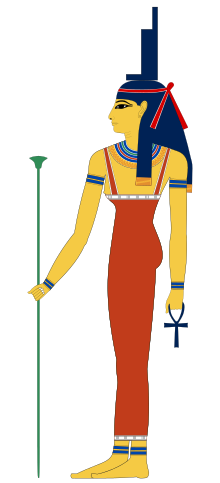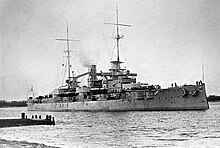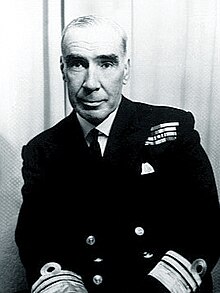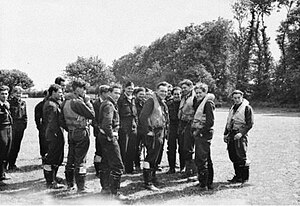Portal:History
The History Portal
History (derived from Ancient Greek ἱστορία (historía) 'inquiry; knowledge acquired by investigation') is the systematic study and documentation of the human past. History is an academic discipline which uses a narrative to describe, examine, question, and analyse past events, and investigate their patterns of cause and effect. Historians debate which narrative best explains an event, as well as the significance of different causes and effects. Historians debate the nature of history as an end in itself, and its usefulness in giving perspective on the problems of the present.
The period of events before the invention of writing systems is considered prehistory. "History" is an umbrella term comprising past events as well as the memory, discovery, collection, organization, presentation, and interpretation of these events. Historians seek knowledge of the past using historical sources such as written documents, oral accounts or traditional oral histories, art and material artifacts, and ecological markers.
Stories common to a particular culture, but not supported by external sources (such as the tales surrounding King Arthur), are usually classified as cultural heritage or legends. History differs from myth in that it is supported by verifiable evidence. However, ancient cultural influences have helped create variant interpretations of the nature of history, which have evolved over the centuries and continue to change today. The modern study of history is wide-ranging, and includes the study of specific regions and certain topical or thematic elements of historical investigation. History is taught as a part of primary and secondary education, and the academic study of history is a major discipline in universities.
Herodotus, a 5th-century BCE Greek historian, is often considered the "father of history", as one of the first historians in the Western tradition, though he has been criticized as the "father of lies". Along with his contemporary Thucydides, he helped form the foundations for the modern study of past events and societies. Their works continue to be read today, and the gap between the culture-focused Herodotus and the military-focused Thucydides remains a point of contention or approach in modern historical writing. In East Asia a state chronicle, the Spring and Autumn Annals, was reputed to date from as early as 722 BCE, though only 2nd-century BCE texts have survived. The title "father of history" has also been attributed, in their respective societies, to Sima Qian, Ibn Khaldun, and Kenneth Dike. (Full article...)
Featured picture
Did you know (auto generated)

- ... that despite his distinguished family history, musicologist Yuri Shcherbinin told friends that "what matters most is what you are, not who your ancestors were"?
- ... that Professor of History Lorenzo Kamel deems Umma–Lagash the first recorded war in human history?
- ... that Group A of the 2006 FIFA World Cup featured the highest-scoring opening game in World Cup history since the competition began using a single match opening format?
- ... that activist Gerlin Bean co-founded the Organisation of Women of African and Asian Descent in 1978, an event described as "a watershed in the history of Black women's rights activism"?
- ... that at the age of 28, Mason Morelli became the first player in Vegas Golden Knights franchise history to record two points in their National Hockey League debut game?
- ... that the Al Qarara Cultural Museum, housed in a former grain silo, contained 6000 years of history?
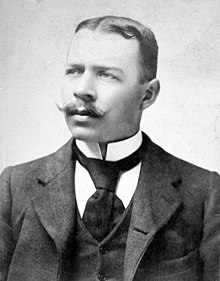
Carsten Egeberg Borchgrevink (1 December 1864 – 21 April 1934) was a Norwegian polar explorer and a pioneer of Antarctic travel. He inspired Sir Robert Falcon Scott, Sir Ernest Shackleton, Roald Amundsen, and others associated with the Heroic Age of Antarctic Exploration.
Borchgrevink was born and raised in Christiania (now Oslo) as the son of a Norwegian lawyer and an English-born immigrant mother. He began his exploring career in 1894 by joining a Norwegian whaling expedition, during which he became one of the first people to set foot on the Antarctic mainland. This achievement helped him to obtain backing for his Southern Cross expedition, which became the first to overwinter on the Antarctic mainland, and the first to visit the Great Ice Barrier since the expedition of Sir James Clark Ross nearly sixty years earlier. (Full article...)
On this day

- 1789 – The University of North Carolina at Chapel Hill (structure pictured), one of the oldest public universities in the United States and the only one to award degrees in the 18th century, was chartered.
- 1886 – The London-based football club Arsenal, then known as Dial Square, played their first match on the Isle of Dogs.
- 1920 – Irish War of Independence: Following an Irish Republican Army ambush of an Auxiliary patrol, British forces burned and looted numerous buildings in Cork.
- 2006 – Criticized worldwide as a "meeting of Holocaust deniers", the International Conference to Review the Global Vision of the Holocaust opened in Tehran.
- Averroes (d. 1198)
- Kamehameha V (b. 1830; d. 1872)
- Carl von In der Maur (d. 1913)
- Big Mama Thornton (b. 1926)
Selected quote
It is of the nature of desire not to be satisfied, and most men live only for the gratification of it.
— Aristotle, 4th-century Greek philosopher
Related portals
More Did you know...
- ... that the Japanese aircraft carrier Amagi (wreck pictured) capsized on 29 July 1945 as a result of cumulative damage inflicted by American airstrikes on 24 and 28 July?
- ... that Scandinavian influence in Scotland, still evident today, was probably at its height during the time of Thorfinn the Mighty?
- ... that, after the 2003 invasion of Iraq, the Bassetki statue, which is more than 4,200 years old, was found in a cesspool?
- ... that in medieval art, angels were often depicted wearing feather tights?
- ... that 49% of German military losses happened in the last 10 months of the Second World War in Europe?
- ... that Joshua L. Goldberg, the first rabbi to serve as a World War II U.S. navy chaplain, was a Russian army deserter?
- ... that Richard Nixon chose the Wilson desk as his Oval Office desk because he believed it was used by Woodrow Wilson, informed that it was used by Henry Wilson, Vice President under Ulysses S. Grant, but actually bought by Garret Augustus Hobart, 24th Vice President of the United States under President William McKinley?
- ... that some of the nominally silver Roman coins from the Bredon Hill Hoard only have a 1% silver content?
Topics
Categories

History • By period • By region • By topic • By ethnic group • Historiography • Archaeology • Books • Maps • Images • Magazines • Organizations • Fictional • Museums • Pseudohistory • Stubs • Timelines • Chronology • People • Wikipedia historians
WikiProjects
![]() WikiProject History •
Ancient Near East • Australian History • Classical Greece and Rome • Dacia • Former countries • History of Canada • Chinese history • European history • Heraldry and vexillology • Indian history • Jewish history • Medieval Scotland • Mesoamerica • Military history • Middle Ages • History of Science
WikiProject History •
Ancient Near East • Australian History • Classical Greece and Rome • Dacia • Former countries • History of Canada • Chinese history • European history • Heraldry and vexillology • Indian history • Jewish history • Medieval Scotland • Mesoamerica • Military history • Middle Ages • History of Science
WikiProject Time • Days of the Year • Years
WikiProject Biography • Composers • Political figures • Saints • United States Presidents
Things you can do
 |
Here are some tasks awaiting attention:
|
Associated Wikimedia
The following Wikimedia Foundation sister projects provide more on this subject:
-
Commons
Free media repository -
Wikibooks
Free textbooks and manuals -
Wikidata
Free knowledge base -
Wikinews
Free-content news -
Wikiquote
Collection of quotations -
Wikisource
Free-content library -
Wikiversity
Free learning tools -
Wiktionary
Dictionary and thesaurus








